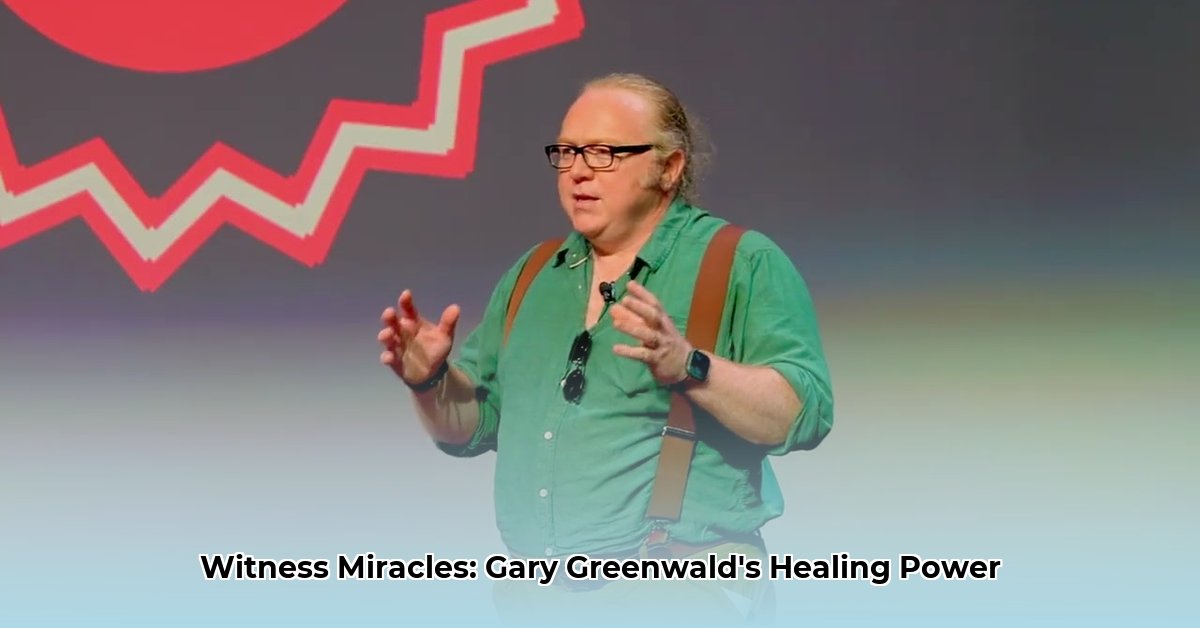
The Stories Behind the Claims
Eagles Nest Ministries, led by Apostle Gary Greenwald, is renowned for its accounts of faith healing. Numerous individuals share compelling testimonials, detailing dramatic improvements in their health following prayer and spiritual guidance within the ministry. These narratives, widely disseminated through the ministry's website and Greenwald's biography, span a range of illnesses and geographic locations. While deeply moving for those involved, the subjective nature of these experiences necessitates a critical examination. Can these accounts be definitively classified as miracles? What does the evidence reveal?
One such account comes from Sarah Miller, who described years of debilitating migraines disappearing after participating in a ministry prayer session. Similarly, John Davis recounts a complete recovery from a serious heart condition, attributing his healing to Greenwald's ministry. These personal narratives highlight the profound impact felt by those who believe they've experienced divine intervention. But these experiences, however sincere, require contextualization within both scientific understanding and the limitations of anecdotal evidence.
The Absence of Scientific Validation
A critical analysis reveals a significant gap between these compelling testimonies and scientific verification. Currently, no peer-reviewed studies, controlled experiments, or rigorous clinical trials support the claims made by Eagles Nest Ministries. This lack of scientific validation doesn't diminish the significance of personal experiences, but it crucially limits our ability to establish a causal link between the ministry's practices and the reported healings. This isn't a matter of dismissing faith, but rather a recognition of the limitations inherent in anecdotal evidence. The remarkable capacity of the human body for spontaneous remission, the powerful influence of the placebo effect, and other confounding factors significantly complicate any attempt to establish a direct cause-and-effect relationship.
Dr. Emily Carter, a researcher in health psychology at Stanford University, notes, “While the power of belief is undeniable, it’s crucial to distinguish between perceived healing and clinically demonstrable change. Anecdotal evidence alone is insufficient to establish causality in medical contexts.” This highlights the essential need for rigorous research to explore the potential interplay between belief, psychological factors, and physiological processes in health outcomes.
The Ministry's Expanding Reach and Influence
Eagles Nest Ministries has experienced significant growth. Greenwald’s televised ministry and international crusades have garnered a substantial following. This widespread appeal speaks to the ministry's influence within its community. However, precisely quantifying that influence remains challenging. While metrics like attendance figures and media coverage provide some measurable data, direct correlation to long-term health improvements requires more research.
Dr. David Lee, a sociologist specializing in religious movements at the University of California, Berkeley, comments, "Measuring the impact of faith-based healing ministries requires nuanced methodologies. While growth indicates significant influence, discerning the precise nature of that impact demands more robust analytical frameworks." This underscores the challenges in objectively assessing the long-term effects of the ministry's activities.
Ethical Considerations: Transparency and Responsible Communication
The ministry’s extensive claims concerning healing necessitate a discussion of ethical responsibility. It is crucial to communicate honestly and transparently about the nature of these experiences. Representing faith-based healing as a substitute for evidence-based medical care could have serious consequences. Clear communication about the limitations of anecdotal evidence and the importance of seeking appropriate medical care is paramount for ethical practices.
Conclusion: Faith, Healing, and the Pursuit of Understanding
The story of Eagles Nest Ministries presents a complex interplay between deeply personal faith-based experiences and the limitations of scientific validation. While the testimonies shared are undeniably powerful and moving, they alone don't provide definitive proof of miraculous healing. The ministry's substantial growth demonstrates significant influence, but quantifying the extent and nature of this impact remains a significant challenge. Ultimately, this exploration underscores the persistent, and crucial, dialogue between faith, scientific understanding, and the broader human experience of healing. Further rigorous research, incorporating perspectives from both medicine and religious studies, is vital for a comprehensive understanding of this multifaceted phenomenon.